The Role of Microbiome In Your Digestive Tract
 Why 2000 years ago, did the father of medicine, Hippocrates, said the famous words"
All disease begins in the gut"? Medical researchers are now
beginning to see the clear connection between the gut microbiota and one’s health.
Why 2000 years ago, did the father of medicine, Hippocrates, said the famous words"
All disease begins in the gut"? Medical researchers are now
beginning to see the clear connection between the gut microbiota and one’s health.
In the past few years it has become increasingly clear that just as there are
microbes that cause disease, there are also beneficial microbes that are crucial
in maintaining health. Beneficial bacteria colonize our gut, skin and urogenital
tract at birth and these complex microbial communities (termed a microbiome)
develop just as our organ systems develop.
Dr. Jeffrey Gordon MD - “The ever present armies of microbes in your digestive
tract are so essential to your survival that you might consider yourself a
super-organism — human plus microbes equals you. These hordes of "gut bugs"
perform digestive duties that the human body alone cannot, according to the
first ever comprehensive study of these microbes' genes. The study maps the
genes of the estimated 500 or more species that live inside us. About a quarter
of these genes appear to belong to unknown species.” "We are discovering parts of
ourselves we were not aware of," said microbiologist and study co-author Dr.
Jeffrey Gordon of the School of Medicine at Washington University in St. Louis,
Missouri. "It's a whole other planet down there."
According to the US National Library of Medicine, NCBI,
the genes in our microbiome outnumber the genes in our genome by about 100 to 1. More than 100 trillion
microorganisms live in our gut, mouth, skin and other mucosal surfaces of our bodies.
The American Microbiome Institute states that nearly every scientific study performed
that has attempted to correlate the microbiome with specific traits or diseases has been
successful. In other words studies are finding that our bacteria (or lack thereof) can be
linked to or associated with: obesity, malnutrition, heart disease, diabetes, celiac disease,
eczema, asthma, multiple sclerosis, colitis, some cancers, and even depression and autism.
Brain Disease & the Microbiome Connection
Human gut microbiota contribute to brain function, not only via neural, humoral,
immune pathways, but also via the cumulative effects of microbial metabolites.
Humans harbor complex communities of microbes, with the vast majority of the microbial population residing
in the gut. Gut microbes perform key functions
for human health including brain health. Research suggests that digestive-system activity may affect cognition
such as thinking skills and memory.
In
Alzheimer's Disease, Dr. Perlmutter
explains the potent interplay between intestinal microbes and the brain. A team of researchers examined the
gut microbiota of twenty-five Alzheimer's patients at the
Wisconsin Alzheimer’s Disease Research Center and compared their samples with those of twenty-five
control subjects matched for age, gender, and health. Overall, Alzheimer's patients had reduced microbial
diversity, as well as a few noteworthy differences in bacterial abundance.
Scientists have also gathered evidence that gut bacteria can influence anxiety
and depression. The notion that the state of our gut governs our state of mind
dates back more than 100 years.

A Way to Improve Your Gut Microbiome
Soil-based bacteria, also known as spore-forming bacteria, have the ability
to "seed" the digestive tract with bacteria which will flourish and support a
balanced microbiome, the term used for the mini-ecology of microorganisms such
as bacteria that inhabit the human body and perform vital functions such as immune
support and digestion.
Through diet and lifestyle, our earliest ancestors were routinely
exposed to spore-based bacteria found in healthy soils and our natural environment. In our modern and hyper-sanitized world,
this primitive yet vital connection to nature has been all but lost.
Dr. Axe MD - "Soil Based Organisms
nourish cells in the colon and liver and actually create new compounds,
such as B vitamins, vitamin K2, antioxidants and enzymes." SBOs can destroy or crowd out harmful
pathogens, such as candida, fungi and parasites. They
also kill off bad bacteria that can bind
to or puncture the gut wall. They’ve been shown to bind to toxins and extract them from the body."
Charles Smith D.O. OBGYN, Surgeon - "I cannot emphasize enough the positive
results my patients have experienced during our five year clinical evaluation of this prebiotic.
The product continues to prove effective at augmenting many natural gut function processes which have
become complicated by various medications, individual lifestyles, environmental toxins, and the
general stress of daily living."
Studies on the human microbiome have been hailed as the new
frontier of medicine as researchers such as Martin Blaser,
professor of microbiology at the New York University School
of Medicine and founder of the Foundation for Bacteriology,
advocate good bacteria as “the new antibiotics”.

Common Warning Signs of a Bacterial Imbalance:
-
Allergies and food sensitivities
- Difficulty losing weight, sugar/carbohydrate craving
-
Frequent fatigue, poor concentration
- Frequent constipation or diarrhea
- Faulty digestion, acid reflux and other gut disorders
- Sleeping poorly, night sweats
- Painful joint inflammation, stiffness
- Bad breath, gum disease and dental problems
- Frequent colds, flu or infections
- Chronic yeast problems
- Acne, eczema skin and foot fungus
- Extreme menstrual or menopausal symptoms
Things that Can Harm Your Microbiome
- Antidepressants, amphetamines, barbiturates, pain medications and non-steroidal anti-inflammatory drugs (NSAIDS)
can suppress the Peristaltic Action of the intestinal process.
- Mouthwashes that contains toxic fluoride, antibacterial soaps shampoos,
and creams and chlorinated drinking water can reduce the microbiome colony.
- GMO food, pesticide and herbicide
- Colonoscopies, chemotherapy and radiation therapy.
- Pasteurization of dairy products and overcooked food have had all their friendly bacterias and enzymes destroyed..
- Antibiotics can wipe out the gut microbiome community in humans as well as in our furry companions for years!
Related:
Burgers and fries have nearly killed our ancestral microbiome

Adverse Effect of Antibiotics on Microbiomes
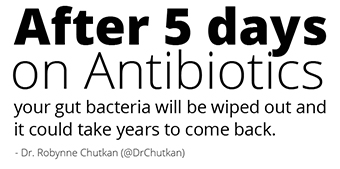 Antibiotics Can Change the Gut Microbiome for Years. Doctors and patients alike should
be thoughtful about starting antibiotics—not only
because of the well-publicized resistant bacteria that are proliferating thanks to
overuse of those drugs, but also because, a new study illustrates, there could be
serious consequences for the individual. As well as for, you know, humanity in general.
Antibiotics Can Change the Gut Microbiome for Years. Doctors and patients alike should
be thoughtful about starting antibiotics—not only
because of the well-publicized resistant bacteria that are proliferating thanks to
overuse of those drugs, but also because, a new study illustrates, there could be
serious consequences for the individual. As well as for, you know, humanity in general.
A study, recently published in mBio, found that just one week long course of antibiotics
changed participants' gut microbiomes, with the effects sometimes lasting as long as a year or longer.
After all, antibiotics don’t discriminate—as they attack the bad bacteria, the good ones are vulnerable too.
Antibiotics and an obsession to sterilize our environments have resulted
in a significant rise in gut-related illnesses and pressure on the medical
community to finally explore this long-ignored aspect of human biology.
Studies on the human microbiome have been hailed as the new
frontier of medicine. Martin Blaser, professor of microbiology at the New York University School of Medicine
advocate good bacteria as "the new antibiotics"
Related:
List of Publications on Microbiome

Microbiome's Role in ANIMAL Health, Behavior
Humans are not the only animals with microbiomes, and microbiomes do not just
impact health. Recent research is revealing surprising roles for microbiomes in shaping
behaviors across many animal taxa—shedding light on how behaviors from diet to social
interactions affect the composition of host-associated microbial communities,
and how microbes in turn influence host behavior in dramatic ways.
Researchers at Penn Vet, with assistance from CHMI,
are actively studying the role of these the microbiome in animal diseases ranging from atopic dermatitis,
inflammatory bowel disease, to mental health.
 Watch Dr. Falconer DVM video,
for his important message on the vital role
that microbiome play in maintaining our animal's health as well as our own health. Few people
realize that the underlying cause of our pet's ill health are often caused by our well intentioned but misguided actions
Watch Dr. Falconer DVM video,
for his important message on the vital role
that microbiome play in maintaining our animal's health as well as our own health. Few people
realize that the underlying cause of our pet's ill health are often caused by our well intentioned but misguided actions
Dr. Falconer DVM - "Your animals are too valuable to you to blindly
follow recommendations from conventional veterinarians, aka Dr. WhiteCoat. If you question authority
and prevention practices that often end up damaging animals in the name of “health,” we’re your pack."
I urge animal lovers to join Dr. Falconer's
in his Vital Animal Pack online course.
 Holistic veterinarians suggest that dogs eat poop (coprophagy)
to replenish microbiome, enzymes and other missing nutrients in their modern diet. Coprophagy is performed by
rodents and by piglets, foals, dogs and nonhuman primates. Due to the construction of the digestive system of rodents
and rabbits, coprophagy is necessary to supply many essential nutrients. The eating of their feces provides a method for
obtaining important nutrients.
Holistic veterinarians suggest that dogs eat poop (coprophagy)
to replenish microbiome, enzymes and other missing nutrients in their modern diet. Coprophagy is performed by
rodents and by piglets, foals, dogs and nonhuman primates. Due to the construction of the digestive system of rodents
and rabbits, coprophagy is necessary to supply many essential nutrients. The eating of their feces provides a method for
obtaining important nutrients.
 NOTE FROM SHIRLEY: "Years ago, I knew a bison
farmer who was selling fresh frozen bison dung also known as paunch manure to his farmer's
market city customers for their pets. My dogs loved eating this paunch manure. Grazing
animals raised on pasture produce dung that is rich in
vitamins, minerals, omega3, and teaming with enzymes and probiotics. These nutrients are usually
missing from our furry companion's diet. Animal lovers who live in the country have often
confessed to me that their dogs and cats always eat fresh dung from pastured animals.
NOTE FROM SHIRLEY: "Years ago, I knew a bison
farmer who was selling fresh frozen bison dung also known as paunch manure to his farmer's
market city customers for their pets. My dogs loved eating this paunch manure. Grazing
animals raised on pasture produce dung that is rich in
vitamins, minerals, omega3, and teaming with enzymes and probiotics. These nutrients are usually
missing from our furry companion's diet. Animal lovers who live in the country have often
confessed to me that their dogs and cats always eat fresh dung from pastured animals.
My dog Shasta also taught me something precious about microbiome. Years ago, when I had an
organic rooftop garden she always loved eating the partially decomposed kitchen
scraps that I threw into my compost pile. I always allowed her to do
what her instinct guided her to do because I respect animal's
innate intelligence. I save the fiber from my home made
wheatgrass juice and other
green leafy veggies which I mix in my dog's food, but first,
I let it rot a bit and decompose which creates the fermentation process.
My dog and my friend's dogs love to eat fermented green veggies that smell like poop." Shirley
The Equine Veterinary Journal reports that four thoroughbred foals were seen to quickly eat part of the faeces deposited by
their own dams on some 40 per cent of the mare-defecating occasions observed
between the second and fifth week after birth. They did not do it before or
after this period. This behavior was thought to be a feeding pattern which
formed a normal part of the foal's development.
Related:
University of Pennsylvania School of Veterinary Medicine Center for Host-Microbial Interactions
The equine intestinal microbiome
 An article published on PubMed explains that the
equine intestinal tract contains a complex microbial population
(microbiota) that plays an important role in health and disease. Despite
the undeniable importance of a 'normal' microbiota, understanding of the composition and function
of this population is currently limited. As methods to characterize the microbiota and its genetic
makeup (the microbiome) have evolved, the composition and complexity of this population are starting
to be revealed.
An article published on PubMed explains that the
equine intestinal tract contains a complex microbial population
(microbiota) that plays an important role in health and disease. Despite
the undeniable importance of a 'normal' microbiota, understanding of the composition and function
of this population is currently limited. As methods to characterize the microbiota and its genetic
makeup (the microbiome) have evolved, the composition and complexity of this population are starting
to be revealed.
Related:
The equine intestinal microbiome

Microbiome Influence Role to Pediatrics
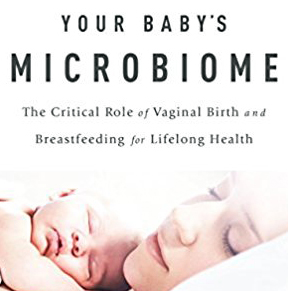 Microbiome Plays a Significant Role in Childhood Development.
Microbial colonization of the human gut begins at birth. The infant’s intestines are believed to be sterile or
contain a very low level of microbes at birth, but the GIT is quickly colonized during and after
delivery. As a neonate passes through the birth canal, he or she is exposed to the microbial population of the mother’s vagina.
Microbiome Plays a Significant Role in Childhood Development.
Microbial colonization of the human gut begins at birth. The infant’s intestines are believed to be sterile or
contain a very low level of microbes at birth, but the GIT is quickly colonized during and after
delivery. As a neonate passes through the birth canal, he or she is exposed to the microbial population of the mother’s vagina.
Researchers from Ohio State University have found that the microbiome plays a significant role in
childhood development. In a study of 77 toddlers, scientists discovered that the abundance
and diversity of microbial populations in the gut appeared to impact behavior — and the
effect was most noticeable in boys.
This correlation persisted even after the researchers
controlled for other factors like diet, method of childbirth and breastfeeding, which are
all known to impact microbial populations.
Related:
The Human Gut Microbiome in Health and Disease
The researchers believe that there is definitely some kind of communication between
the brain and the gut. The microbiome of a toddler's gut may influence their behavior.
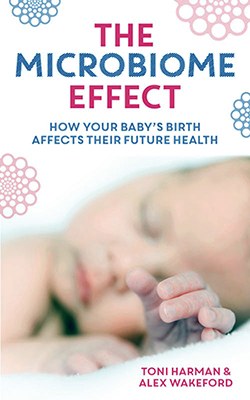 Scientists found correlations between temperament and the presence
of specific types of intestinal bacteria in both girls and boys. The researchers aren't
looking for a way to help parents modify the 'terrible twos,' but for clues about how -
and where - chronic illnesses like asthma,obesity allergies and bowel diseases start.
Scientists found correlations between temperament and the presence
of specific types of intestinal bacteria in both girls and boys. The researchers aren't
looking for a way to help parents modify the 'terrible twos,' but for clues about how -
and where - chronic illnesses like asthma,obesity allergies and bowel diseases start.
They describe how
natural childbirth, breastfeeding, and solid foods
influence children’s microbiota. They also offer practical advice on
matters such as whether to sterilize food implements for babies, the use of
antibiotics, the safety of vaccines, and why having pets is a good idea.
Western medicine has by and large failed to appreciate the complexity of how the brain,
gut, and more recently, the gut microbiota, the microorganisms that live inside our digestive tract, communicate with one another.
After
5 days on antibiotics your child's friendly gut bacteria will be wiped out and
it could take years to come back. In The Mind-Gut Connection,
Dr. Emeran Mayer, professor of medicine and executive director of the UCLA Center for
Neurobiology of Stress, offers a revolutionary and provocative look at this.
Saving Your Child from an over Sanitized World
In the two hundred years since we discovered that microbes cause infectious diseases, we’ve battled
to keep them at bay. But a recent explosion of scientific knowledge has led to undeniable evidence
that early exposure to these organisms is beneficial to a child’s well-being. Our modern lifestyle,
with its emphasis on hyper-cleanliness, is taking a toll on children’s lifelong health.
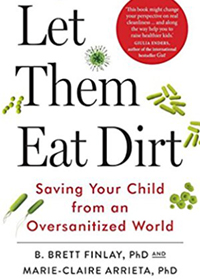 Allowing children to play with dirt actually helps them build their
immune systems, and reduce their chances of developing chronic conditions, such as asthma.
Allowing children to play with dirt actually helps them build their
immune systems, and reduce their chances of developing chronic conditions, such as asthma.
New science shows that a lot of the tiny organisms called microbes that we’re so busy
blasting away with our hand sanitizers, antibacterial soaps and liberal doses of
antibiotics are having a profoundly negative impact on our kids’ immune systems,
says microbiologist Marie-Claire Arrieta PhD.
In assistant professor at the University of Calgary, and microbiologist Brett Finlay, make the case that
we’re raising our kids in a cleaner, more hyper-hygienic environment than ever before. They say that overdoing
it the way we are is contributing to a host of chronic conditions ranging from allergies to obesity.
Studies have shown that cleaning everything that goes in baby’s mouth
increases their chances of asthma. if your child is out in the backyard playing with dirt, you do
not need to remove that dirt. There’s no benefit from doing so. There has to be a balance between
preventing infection, which is still a real threat in society, but also promoting this microbial
exposure that is healthy.
Poor Food Quality Harm Kids’ Gut Microbiomes
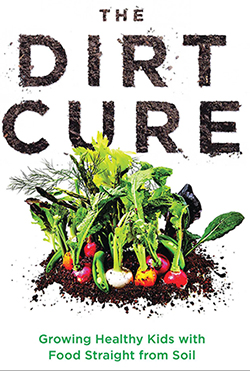 Author of The Dirt Cure: Growing Healthy Kids with Food Straight from Soil,
Maya Shetreat-Klein, MD, reveals the shocking contents of children’s food,
how it’s seriously harming their bodies and brains, and what we can do about it.
And she presents the first nutritional plan for getting and keeping children healthy—a
plan that any family can follow.
Author of The Dirt Cure: Growing Healthy Kids with Food Straight from Soil,
Maya Shetreat-Klein, MD, reveals the shocking contents of children’s food,
how it’s seriously harming their bodies and brains, and what we can do about it.
And she presents the first nutritional plan for getting and keeping children healthy—a
plan that any family can follow.
Recent changes in growing and processing food harm kids’ gut microbiomes,
immune systems, and brains, contributing to chronic
disease. One week long course of antibiotics can change a child's gut microbiomes,
with the effects sometimes lasting as long as a year.
Over the past several years there has been an exponential
increase in the number of studies linking imbalances or disturbances
of the gut microbiota to a wide range of diseases including obesity,
inflammatory bowel diseases, depression and anxiety . One of the best ways
to establish and support a healthy gut microbiome is by providing the right
“foods” for your gut bacteria. These “foods” are called prebiotics.
Dr. Maya’s plan started with the soil, using fresh foods and nature to heal her son from the
inside out and the outside in. Since then, she’s successfully helped chronically
ill patients from around the world. Revealing the profound connections between food,
nature, and children’s health, Dr. Maya explains how food is constantly changing kids’
bodies, brains, and even genes—for better or for worse.
"If a native abandoned his ancestral
eating habits in favor of modern foods, ill health and dental
caries followed. If that same person switched back to the original eating pattern,
however, health returned and the progression of dental decay stopped and reversed
itself. This is perhaps the most uplifting aspect of Price's work: one can always
reverse the trend; there is always hope. " Dr. Weston Price M.D

Lack of Gut Bacteria Influence in Autism
Microbiome has a powerful impact in Autism Spectrum Disorder.
According to the American Psychological Association (APA),
gut bacteria (microbiome) produce an array of neurochemicals that the brain
uses for the regulation of physiological and mental processes,
including memory, learning and mood.
Mary N. Megson, M.D. - "Autism may be a disorder linked to the disruption of the G-alpha protein,
affecting retinoid receptors in the brain. A study of sixty autistic children suggests that autism may be
caused by inserting a G-alpha protein defect, the pertussis toxin found in the D.P.T.
vaccine, into genetically at-risk children."
"I believe the Gut and Physiology Syndrome (GAPS) Nutritional
program is vitally important for MOST people, as the majority of people
have such poor gut health due to poor nutrition and toxic exposures. We've
previously discussed how the GAPS program can help those with autism and
other neurological- and psychiatric disorders, such as: Dyslexia and dyspraxia,
Depression, Obsessive-compulsive disorder, Bipolar disorder, Epilepsy" Dr. Campbell-McBride MD
Chia seeds is the No-Gluten Omega-3 Food with Healing Power. The
chia seeds were the power food of the ancient
Aztecs. According to Spanish manuscripts, the Aztecs ate the Chia seeds to improve
their endurance - they called it their "running food" because messengers could
purportedly run all day on just a handful.

GMO Foods Destroying Your Gut Flora
The American Academy of Environmental Medicine (AAEM) urges doctors to prescribe non-GMO (Genetically Engineered Foods )diets
for all patients. They cite animal studies showing organ damage, gastrointestinal and immune
system disorders, accelerated aging, and infertility.
Dr. Don Huber, an agricultural scientist and expert in microbial ecology,
has issued stern warnings about shockingly devastating effects of genetically
engineered food crops after discovering a brand new organism in GE animal feed—an
organism that has since been clearly linked to infertility and miscarriage in
cattle, horses, pigs, sheep, and poultry.
Feeding GM food soaked in Monsanto’s Roundup causes liver and kidney problems, fertility issues,
tumors, fatigue, paralysis, allergic reactions, and more in animal studies. Now it appears
that some GMO foods may be perforating your stomach as well.
Over the years, modern medicine has become increasingly aware of the importance
of gut microbes to the point that probiotics supplements have been shown, in
good scientific studies, to improve treatment of various medical conditions,
while also reducing side effects of needed medications, such as antibiotics.
Additionally, modern medical practice now uses a procedure called fecal
transplantation for individuals whose gut biota have been disrupted by a deadly bacterial species, and the treatment
has saved lives.
Foods from crops grown from genetically modified seeds in
which farmers also used the herbicide glyphosate disrupts
intestinal microbiota, the community of numerous friendly bacteria
that live in our gut, consisting of trillions of single celled organisms.
Research has uncovered an intricate web connecting our gut flora
to virtually every process in our body. As such, imbalances in our
microbial communities have been implicated in countless health
issues, including immune health, psychological well-being,
and some of the deepest chronic health issues of our times.
Studies on the human microbiome have been hailed as the new
frontier of medicine as researchers such as Martin Blaser,
professor of microbiology at the New York University School
of Medicine and founder of the Foundation for Bacteriology,
advocate good bacteria as “the new antibiotics”.
Soil Based Organisms (SBO) microbiome nourish cells in the colon and liver and actually create new compounds,
such as B vitamins, vitamin K2, antioxidants and enzymes.
"SBOs can destroy or crowd out harmful
pathogens, such as candida, fungi and parasites. They
also kill off bad bacteria that can bind
to or puncture the gut wall. They’ve been shown to bind to toxins and extract them from the body."
Dr. Axe

Fasting For Your Gut Microbiome Health
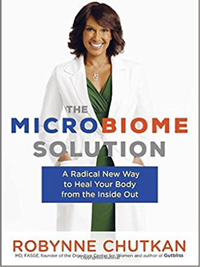 Researchers at St. Mary’s University, in Texas, published a study in FEMS Microbiology Ecology
about the impact that fasting, starvation, and antibiotics have on the gut microbiome. intermittent fasting
is one of many ways to change the makeup of the microbiome, and it can quell the inflammatory
symptoms Fasting seems to allow the time for bacteria to reset their environment.
Researchers at St. Mary’s University, in Texas, published a study in FEMS Microbiology Ecology
about the impact that fasting, starvation, and antibiotics have on the gut microbiome. intermittent fasting
is one of many ways to change the makeup of the microbiome, and it can quell the inflammatory
symptoms Fasting seems to allow the time for bacteria to reset their environment.
Digestive microbes are active in the process of digestion, so by giving gut bacteria time without food,
it seems to allow a mechanism by which bacteria go to work on their own populations. During
this period it’s thought that the overall health and diversity of gut bacteria is maintained.
intermittent fasting is a term used for various periods without food where there is a cycle of
fasting and non-fasting.
Dr. Ellen Mowry at the Johns Hopkins University in Baltimore, is looking at the impact of intermittent
fasting on our microbiomes — the universe of trillions of microbes, mainly bacteria, that live in our guts.
Intermittent fasting is pretty much what it sounds like.

The Microbiome Diet For Permanent Weight Loss
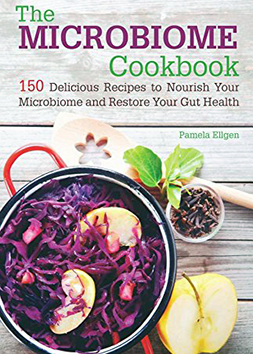 Cutting–edge science has shown that the microbiome
is the key to overall mental and physical health—and the secret behind healthy, sustainable
weight loss. New evidence indicates that gut bacteria alter the way we store fat, how we
balance levels of glucose in the blood, and how we
respond to hormones that make us feel hungry or full.
Cutting–edge science has shown that the microbiome
is the key to overall mental and physical health—and the secret behind healthy, sustainable
weight loss. New evidence indicates that gut bacteria alter the way we store fat, how we
balance levels of glucose in the blood, and how we
respond to hormones that make us feel hungry or full.
An early hint that gut microbes might play a role in obesity came from studies comparing
intestinal bacteria in obese and lean individuals. In studies of twins who were both lean or
both obese, researchers found that the gut community in lean people was like a rain forest
brimming with many species but that the community in obese people was less diverse—more like
a nutrient-overloaded pond where relatively few species dominate.
Healthy gut bacteria is crucial to maintaining normal weight and metabolism. Unfortunately,
several features of the modern lifestyle directly contribute to unhealthy gut flora including
antibiotics and other medications like birth control and NSAIDs
Diets high in refined carbohydrates, sugar and processed foods,
dietary toxins like industrial seed oils and wheat that cause leaky gut.
We also know that infants that aren’t breast-fed and are
born to mothers with bad gut flora are more likely to develop unhealthy gut bacteria, and that
these early differences in gut flora may predict overweight and obesity in the future. Diet
is an important factor in shaping the gut ecosystem. A diet of highly processed foods, for example,
has been linked to a less diverse gut community in people.
Related:
Intestinal bacteria may help determine whether we are lean or obese

Microbiome’s Role on the Effectiveness of a Vaccine
Medical research suggest that the gut microbiome is necessary for a
rapid antibody response after vaccination, because the response of
antibody secreting cells depends on the microbiome. Research also
suggested that multiple types of bacterial communities are necessary,
and not just a few specific species, for gut bacteria to mediate immune responses.
Studies of the relationship between the microbiome, development and function of the
immune system are demonstrating novel concepts that could significantly alter the way we treat
disease and promote wellness. Several diseases, including inflammatory bowel disease, allergy/asthma,
and diabetes, are associated with changes in composition of the microbiome. Recent findings suggest novel
 complex mechanisms by which the microbiome impacts immune cell
development and differentiation.
complex mechanisms by which the microbiome impacts immune cell
development and differentiation.
A major implication of these findings is that the composition of microbiome may ultimately
affect vaccine efficacy. We explore here the potential role of the microbiome in vaccine responses in the context of our
growing understanding of the relationship between the gastrointestinal microbiota, resident immune cell
populations, and systemic immunity.
These findings of the microbiome’s role on the effectiveness of a vaccine in
inducing an immune response could impact future vaccine development. Further
research may be done to better understand the role that diet, health, and other
factors that affect the human microbiome play in vaccine response. Microbiome
differences between individuals in developing nations and those in
industrialized nations could play a significant role in the efficacy of existing and future vaccines.
The new data also offer a glimpse of how the innate and adaptive immune responses have
co-evolved in the presence of microbes. The microbiome has “a quantitative and qualitative impact on the immune system.
Related:
Influence of the microbiota on vaccine effectiveness